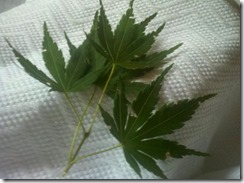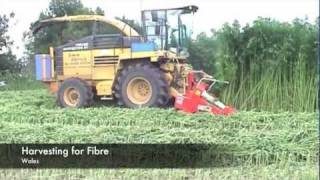Comer: First hemp crop in decades set for planting

LOUISVILLE, Ky. (AP) — Kentucky’s first industrial hemp crop in decades will start going into the ground next month now that the pipeline for shipping seeds into the state is opening up to allow the experimental plantings, state Agriculture Commissioner James Comer said Tuesday.
Comer said he expects the first batches of hemp seeds to arrive in coming days at the state Agriculture Department at Frankfort.
“We’re rapidly approaching a crucial time for the seeds to be put in the ground,” he said by phone.
So far, eight pilot projects are planned statewide as part of a small-scale reintroduction to gauge the versatile crop’s potential in the marketplace and as a money maker for farmers. The first planting is scheduled for May 16 in Rockcastle County, said Comer’s chief of staff, Holly Harris VonLuehrte.
“Hopefully we can get enough seeds to have credible research data gathered by this fall,” Comer said. “And next year, hopefully we’ll have enough seeds to have several processors in the state and several farmers under contract growing it.”
Hemp production was banned decades ago when the federal government classified the crop as a controlled substance related to marijuana. Hemp and marijuana are the same species, Cannabis sativa. Hemp has a negligible amount of THC, the psychoactive compound that gives marijuana users a high.
The crop’s comeback gained a foothold with passage of the new federal farm bill. It allows state agriculture departments to designate hemp pilot projects for research in states that already allow the growing of hemp.
Kentucky lawmakers passed legislation last year that allowed hemp to be reintroduced, if the federal government allows its production.
Once the farm bill allowed the experimental plantings, the next challenge was getting hemp seed into the state.
Comer said Tuesday his staff has “gone through every level of federal bureaucracy you can go through to get those seeds in.”
U.S. Border Patrol officials have been cooperative as Comer’s office worked to develop a supply route to bring in hemp seeds, VonLuehrte said. The initial seeds are coming from Canada and Italy, Comer said.
State agriculture officials have helped match farmers with researchers for the pilot hemp projects. Some hemp grown will be sold for commercial uses after the fall harvest to help determine the crop’s marketability, VonLuehrte said. Some hemp will be grown purely for research, she said.
One pilot project in Fayette County will focus on hemp’s potential in medicine, she said. Gov. Steve Beshear recently signed into law a bill that allows doctors at two Kentucky research hospitals to prescribe cannabidiol to treat patients.
Several universities are participating in the hemp projects, also aimed at answering basic production questions for a crop that once thrived in Kentucky.
“It’s going to answer every question that a prospective farmer … would want to know,” Comer said. “What’s the optimum date to plant? Which variety of seeds grows best on which soil? What type of farm equipment does it take to harvest this hemp?”
Comer sees hemp as a way to boost Kentucky’s economy, especially in rural areas, through crop production, processing and manufacturing. Hemp was historically used for rope but has many other uses: clothing and mulch from the fiber; hemp milk and cooking oil from the seeds, and soap and lotions.
The next goal will be to win congressional approval to deregulate hemp, he said.
“We’re hopeful that after a year or two, that it can be deregulated and treated like any other agricultural crop,” Comer said.
CONTINUE READING…





